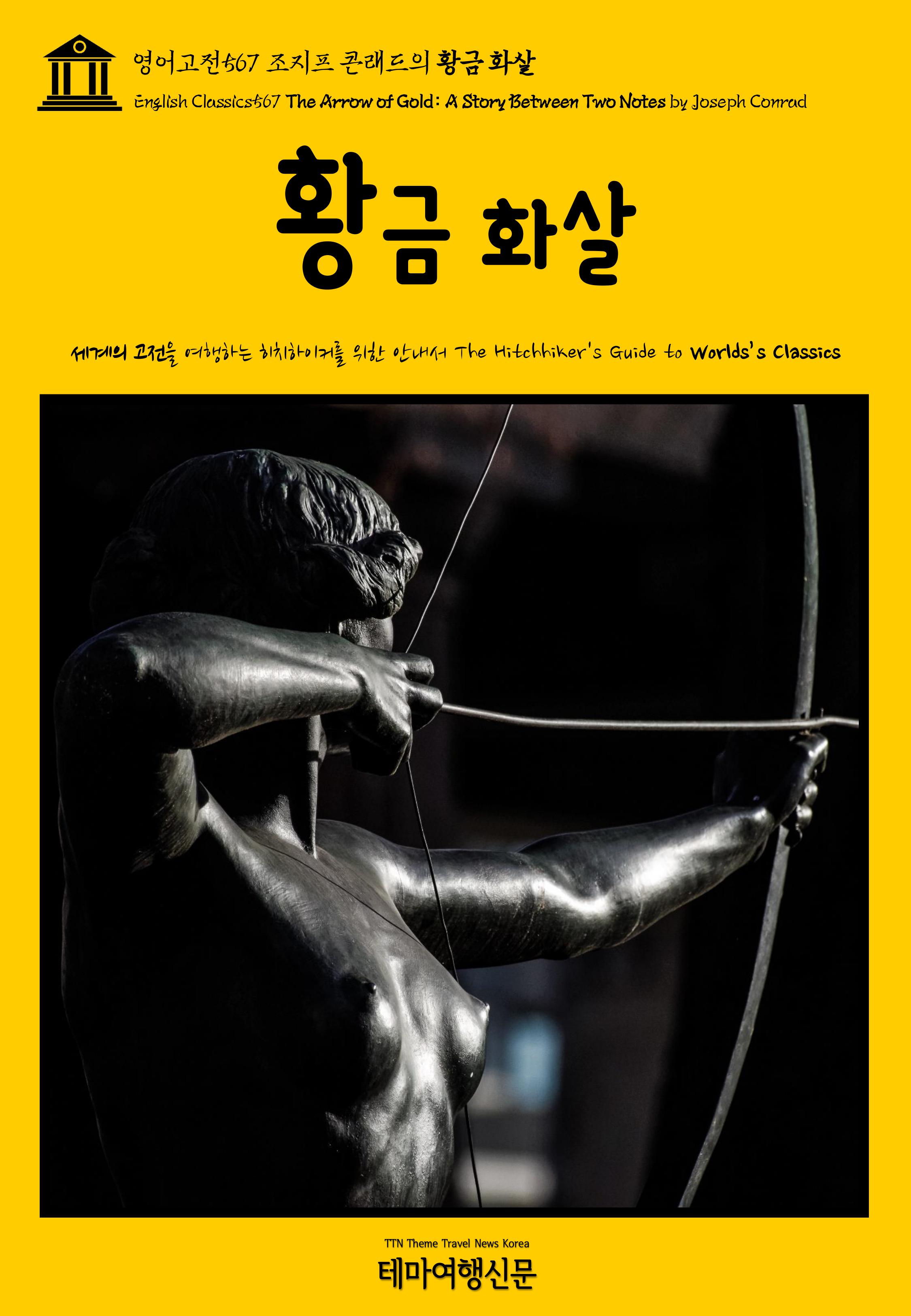황금 화살(The Arrow of Gold: A Story Between Two Notes by Joseph Conrad)(1894)은 대표작 암흑의 핵심(Heart of Darkness)(1899)을 비롯해 ‘린가드 3부작(Lindard Trilogy)’ 섬의 추방자(An Outcast of the Islands)(1896), 올마이어의 어리석음(Almayer's Folly: A Story of an Eastern River)(1895), 구조(The Rescue: A Romance of the Shallows)(1920)와 같은 장편소설은 물론 에세이와 대본까지 서른 권 이상을 출간한 폴란드 귀족 가문 출신의 영국 작가 조지프 콘래드(Joseph Conrad)(1857~1924)의 소설(Novel)입니다. 1918년 12월부터 1920년 2월 로이드(Lloyd's Magazine)에 연재 당시의 제목은 웃음(The Laugh)이였으며, 1872년 시작해 1876년 종전한 제3차 칼리스트 전쟁(the Third Carlist War) 당시 프랑스 마르세유(Marseille)를 배경으로 하는 작품입니다. 제3차 칼리스트 전쟁은 ‘스페인의 마지막 칼리스트 전쟁’으로, 1, 2차와 비교해 규모가 작고 그 영향력 또한 상대적으로 미약합니다. 1868년 이사벨라 2세 여왕은 이탈리아 왕의 아들 아마데오 1세에게 스페인 국왕을 선포하였습니다. 이에 반발한 이들 ? 즉 킬리스트(Carlist)는 카탈루냐, 발렌시아, 아라곤 푸에로스의 복원을 주장하며, 스페인 전역 중에서 특히 카탈로니아를 근거로 반란을 일으켰습니다. 작품에는 마드리드 공작 카를로스(the Spanish Pretender Carlos, Duke of Madrid)의 지지자들과 무기밀매업자 로드 X(Lord X), 블런트 대위(Captain Blunt), 칼리스트군(Carlist army)에 무기를 밀수하는 도나 리타(Do?a Rita) 등의 개성 넘치는 캐릭터가 등장합니다. 테마여행신문 TTN Korea 영어고전(English Classics)과 함께 어제도, 오늘도, 내일도 멋진 문학여행을! B
FIRST NOTE. The pages which follow have been extracted from a pile of manuscript which was apparently meant for the eye of one woman only. She seems to have been the writer’s childhood’s friend. They had parted as children, or very little more than children. Years passed. Then something recalled to the woman the companion of her young days and she wrote to him: “I have been hearing of you lately. I know where life has brought you. You certainly selected your own road. But to us, left behind, it always looked as if you had struck out into a pathless desert. We always regarded you as a person that must be given up for lost. But you have turned up again; and though we may never see each other, my memory welcomes you and I confess to you I should like to know the incidents on the road which has led you to where you are now.”
첫 번째 참고. 다음 페이지는 분명히 한 여성의 눈을 위해 의도된 원고 더미에서 추출되었습니다. 작가의 소꿉친구였던 모양입니다. 그들은 어린 시절, 또는 어린 시절에 헤어진 적이 없었습니다. 몇 년이 지났습니다. 그런 다음 젊은 시절의 동반자였던 그 여자에게 무언가가 떠올랐습니다. 그녀는 그에게 편지를 썼습니다. 나는 삶이 당신을 어디로 데려왔는지 압니다. 당신은 확실히 당신 자신의 길을 선택했습니다. 그러나 뒤에 남겨진 우리에게 그것은 항상 당신이 길 없는 사막으로 내달린 것처럼 보였습니다. 우리는 항상 당신을 잃어버린 것을 포기해야 하는 사람으로 여겼습니다. 그러나 당신은 다시 나타났습니다. 우리가 서로를 볼 수는 없지만 내 기억은 당신을 환영하고 당신을 지금 여기까지 이끈 길에서 일어난 사건을 알고 싶습니다."
This, his first great adventure, as he calls it, begins in Marseilles. It ends there, too. Yet it might have happened anywhere. This does not mean that the people concerned could have come together in pure space. The locality had a definite importance. As to the time, it is easily fixed by the events at about the middle years of the seventies, when Don Carlos de Bourbon, encouraged by the general reaction of all Europe against the excesses of communistic Republicanism, made his attempt for the throne of Spain, arms in hand, amongst the hills and gorges of Guipuzcoa. It is perhaps the last instance of a Pretender’s adventure for a Crown that History will have to record with the usual grave moral disapproval tinged by a shamefaced regret for the departing romance. Historians are very much like other people.
그의 첫 번째 대모험은 마르세유에서 시작됩니다. 그것도 거기서 끝입니다. 그러나 그것은 어디에서나 일어날 수 있습니다. 그렇다고 해서 관련자들이 순수한 공간에 모일 수 있었던 것은 아닙니다. 지역은 분명한 중요성을 가졌습니다. 시간에 관해서는 공산주의적 공화주의의 과잉에 대한 전 유럽의 일반적인 반응에 고무된 돈 카를로스 드 부르봉(Don Carlos de Bourbon)이 스페인의 왕위를 위해 시도한 70년대 중반 즈음의 사건에 의해 쉽게 고정됩니다. 손에 팔을 들고 기푸스코아의 언덕과 협곡 사이. 그것은 아마도 역사가 떠나는 로맨스에 대한 부끄러운 후회로 얼룩진 보통의 심각한 도덕적 비승인으로 기록해야 할 왕관을 위한 권리를 주장하는 이의 모험의 마지막 사례일 것입니다. 역사가는 다른 사람들과 매우 비슷합니다.
However, History has nothing to do with this tale. Neither is the moral justification or condemnation of conduct aimed at here. If anything it is perhaps a little sympathy that the writer expects for his buried youth, as he lives it over again at the end of his insignificant course on this earth. Strange person?yet perhaps not so very different from ourselves.
그러나 역사는 이 이야기와 아무 관련이 없습니다. 도덕적 정당화나 행위에 대한 비난도 여기에서 목적하는 것이 아닙니다. 작가가 이 땅에서 보잘 것 없는 행로를 마치고 다시 살아나며 묻힌 젊음에 대해 바라는 것은 작은 동정일 것입니다. 이상한 사람이지만 아마도 우리와 그다지 다르지 않을 것입니다.






